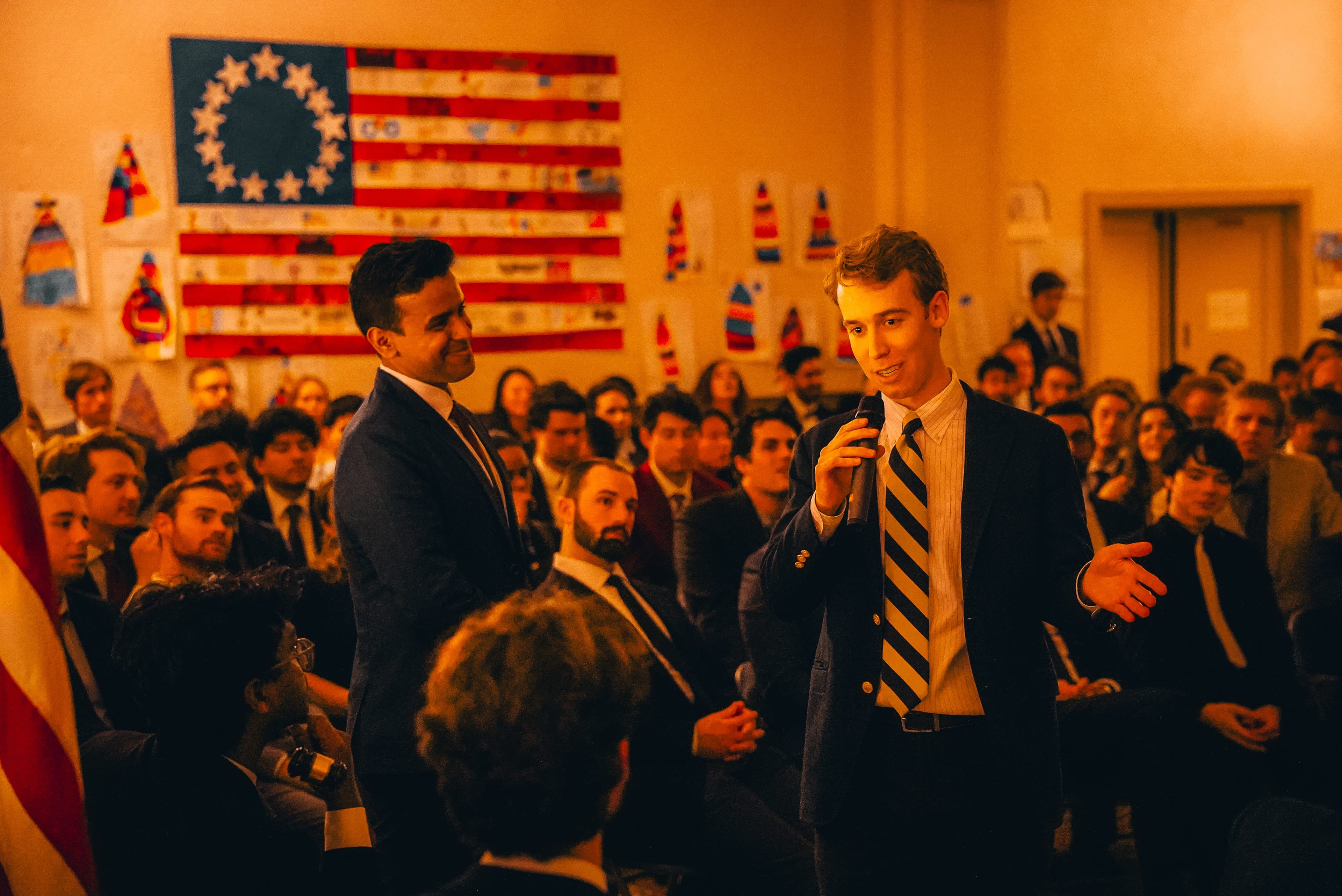
Meet the Secret Society Where Young Tech Debates the Future of the WestJan 30
the hamilton society, which hosts monthly debates inside a catholic church, is quickly becoming a cultural focal point in san francisco
Sep 8, 2021

Feeling inspired. The talk of the town last week was “It Girl” venture capitalist Li Jin’s new 13 million dollar fund for “influencer-related startups,” propelled into the Daily Narrative by wildly popular tech fan fiction writer Taylor Lorenz in an uncharacteristically-glowing profile for the New York Times. Li seems like a genuinely kind person, and I hope her fund succeeds. She clearly cares about creative platforms and the creative people who bring them to life. As a somewhat creative person who has found his voice greatly and gratefully amplified by several such platforms, I naturally find myself amenable to the cause. Li is also a champion of Web3, and correctly argues new technology in the space will afford greater economic opportunity to the average artist, or, her preferred terminology, “worker.” Love this for us. But in her profile, the phrase “inspired by the ideas of Friedrich Engels and Karl Marx” is employed, and this, from a jet setting venture capitalist, gives me pause.
Though explicitly not explicitly by name — “‘I’m very careful to not use that word, the S word,’ she said of socialism, ‘it’s unnecessarily polarizing in the U.S.’” — the profile focusses a great deal on Li’s affinity for socialism, an authoritarian ideology that has led to the greatest mass murders in human history, and that is entirely antithetical not only to the work of venture capitalists, but to the far more important work of technology companies funded by venture capital, to the concept of industry broadly, and to Web3, which generally refers to decentralized applications that run on a blockchain, technology itself designed overtly to protect people from authoritarianism. It’s all just kind of… awkward? But a little light venture socialism is also not entirely new to the industry.
Investors like Hunter Walk have shown public support for Alexandria Ocasio-Cortez (though most of his tweets have been deleted), as have Alexis Ohanian and Chris Sacca. Still, to the best of my knowledge, none of these investors have officially endorsed Twitter’s favorite Brooklyn socialist, nor have any of them flirted with any sort of explicit case for socialism. They just seem to think the young gun reds are cool, and what’s the big deal with normalizing the end of American industry? Ocasio’s on Twitch, for God’s sake. She can’t be all that bad!